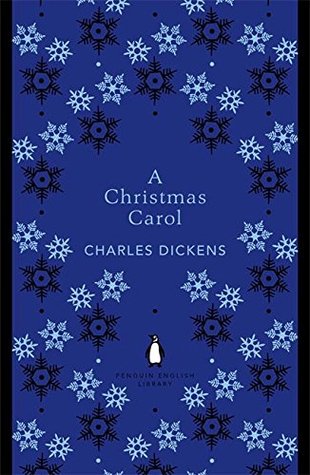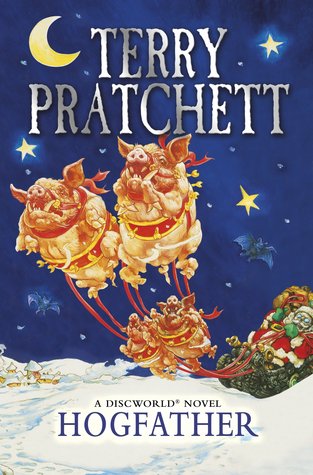A Christmas Carol by Charles Dickens ★★★★☆

Ebenezer Scrooge’s moral awakening is a story that is so well-known that it could sit among fairytales in its cultural significance, so I was glad to still find this a compelling and original read on my first experience of it. In particular, I enjoyed the dark and heavy atmosphere, the foggy landscape of inner London twisting perfectly with the juxtaposition of the joy of Christmas and bleakness of winter. For a novella, the establishment of Scrooge’s life and character is solid and his motivations are easy to grasp. Dickens’ writing is immersive and sensual, and here he particularly excels in capturing the excitement and togetherness of Christmas with an impeccable level of detail to the richness of food and the intimacy of indoor spaces. Both the writing and the story itself imbue A Christmas Carol with a timeless air, but it’s the resonant message of human decency, connection and charity that cements its status as a classic.
Hogfather by Terry Pratchett ★★★★☆

I read my first Discworld novel just in October, and while I knew I’d come back to Pratchett’s universe, I didn’t think it would be this soon. Hogfather is a delightful Christmas (or Hogswatch) story with an equal cynical dissection of festive traditions and affection for the joy of magic and belief. On Hogswatch Night, the Hogfather is unavailable and Death takes his place but as I’ve come to find out in my previous experience (Equal Rites and Good Omens) of Pratchett, it’s never quite that simple. Pratchett’s plots are rich and multi-faceted, and this one I enjoyed even more than my gentle beginnings with Equal Rites because the characters all blossomed and their interactions with each other are both amusing and heart-warming. Nigel Planer’s performance of the audiobook really illuminated these aspects too. In particular I loved Death’s sections, so I’ll definitely be looking for more of the books featuring him.
Hercule Poirot’s Christmas by Agatha Christie ★★★☆☆

After really enjoying my first taste of Agatha Christie in the summer, the festive season felt like the perfect time to revisit her cosy style and immersive mysteries. Having read and loved Miss Marple last time, I wasn’t sure I’d enjoy Poirot as the focal detective so much, but I’m pleased to say I actually really enjoyed his character. The novel begins on 22nd December as a fractured family are called to gather for Christmas by their divisive patriarch, but he is murdered on Christmas Eve. With an extremely full house and several overlapping alibis, Poirot has his work cut out narrowing down the suspects. A good majority of the novel is pure dialogue, which keeps the story moving quickly which I find much needed in detective stories when it can be all to easy to roll over and over the same points of evidence. I really appreciated the sections being divided into the days between the 22nd and 28th December, which meant I could read each section on the actual date it was set. This was a fun read overall with a satisfying conclusion which I only guessed right before the reveal. The only drawback for me was probably the sheer amount of characters who you never truly get to know or understand beyond a surface level archetype.
